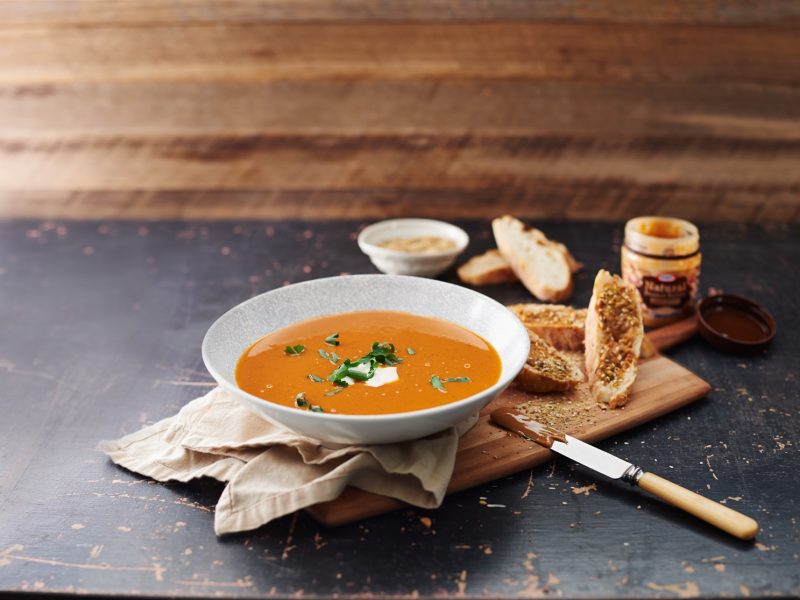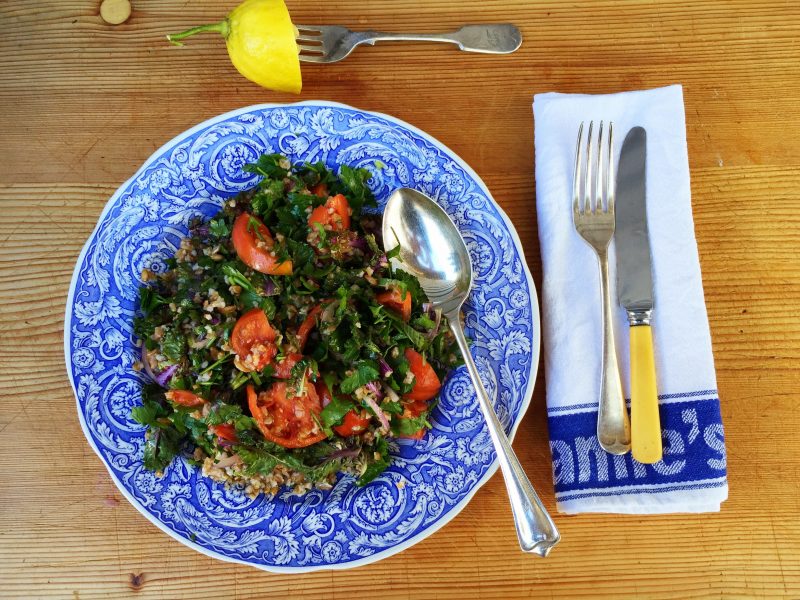It’s Food Allergy Awareness Week in Australia and the perfect time to share with you some work the Scoop Nutrition team has been doing in food-service and hospitality. We love chefs, nearly as much as we love food. And we’ve loved the reaction to our Allergen and Special Diet workshops that we’ve been running for 12months now from the food court staff to executive chefs. If you have a food allergy or are a parent, teacher, carer or friend of someone who does, we hope these insights help. And if you are a chef, FOH manager or restaurant owner, we hope you get a taste of some of the solutions available to working through the maze of special diet requests.
In Australia, and many other countries, it’s a legal requirement for packaged food to be labelled with common allergens, but what does this mean for food served in a restaurant or cafe? Well, FSANZ states that following a customer request, the outlet must verbally or in written form tell the diner about the presence of the top allergens in their food or dish along with gluten containing grains (wheat, rye, barley, oats). This involves careful label reading as ALL compound ingredients with these foods substances must be declared, even if they are used as a food additive. So every kitchen needs a menu management system to flag allergens accurately, including asking suppliers of raw ingredients for specification sheets.
Plan ahead
The chefs and front of house staff we have trained are hungry (pardon the pun) for information and we can not speak highly enough about their level of care and interest. They are a little wary of us dietitians at the beginning, but soon realise that we speak their language. They are even keen to learn about low fructose /FODMAP diets and more! We love that our clients such as Crown Melbourne appreciate that the influx of special diet customers is not slowing down and they are investing resources in training and allergen policies and new procedures. BUT. As a diner you need to respect that allergen management is not part of standard foodservice training or knowledge and many are working fast to get up to speed. If you plan to eat out and have a special diet request, please phone ahead or notify staff when you make you’re booking. You may like to send in and always carry a chefs card that outlines what’s on and off your menu. This is also a great tool when travelling as you can have it translated into another language.

Dissect the menu
The biggest risk to diners with severe food allergies comes from the presence of trace allergens that are not necessarily ingredients in a dish. They’ve only made it into the dish due to cross contact also called cross contamination or cross transference. If you order a gluten/wheat free pizza and the server uses a common pizza wheel to cut your slices, the pizza is no longer gluten free. A wiped down knife that’s been used to cut fish can transfer trace allergens, if then used to cut vegetables for a salad. And the list goes on. So FOH staff and the kitchen need to be vigilant in controlling the environment to minimise this risk. On our study tour to the USA we’ve seen facilities that dedicate a whole station and equipment to special diet requests only. And luxury hotels with a separate rotating toaster on the breakfast buffet just for gluten free breads, so not even a crumb of toast will cross contaminate. There are many planning tools that really can help kitchens set up new policies and procedures. As a special diet diner we recommend you avoid any buffets and be prepared to to help dissect the menu. Ask to speak with chef and get down to details. What soy sauce do you use, wheat based or not? Is the same deep fryer used for chips and fish?

Seek expert help
There are some helpful resources we recommend for food-service outlets to start the planning process towards effective allergen management:
1. The new resource Be Prepared Be Allergy Aware Kit 2011 developed by Anaphylaxis Australia and NSW Health.
2. Anaphylaxis Australia’s Food Allergen Kit for Food Service available for purchase here.
If you’re a person with a food allergy we hope you will spread the word and print a copy of the free resource for your corner cafe. If you’re a chef or food-service operator and would like to chat to us about consulting services. Just contact us. We promise, we don’t bite. How about you lovely readers? Have you got a question? Or a practical tip or hint to share? How can we all become more allergy aware?



